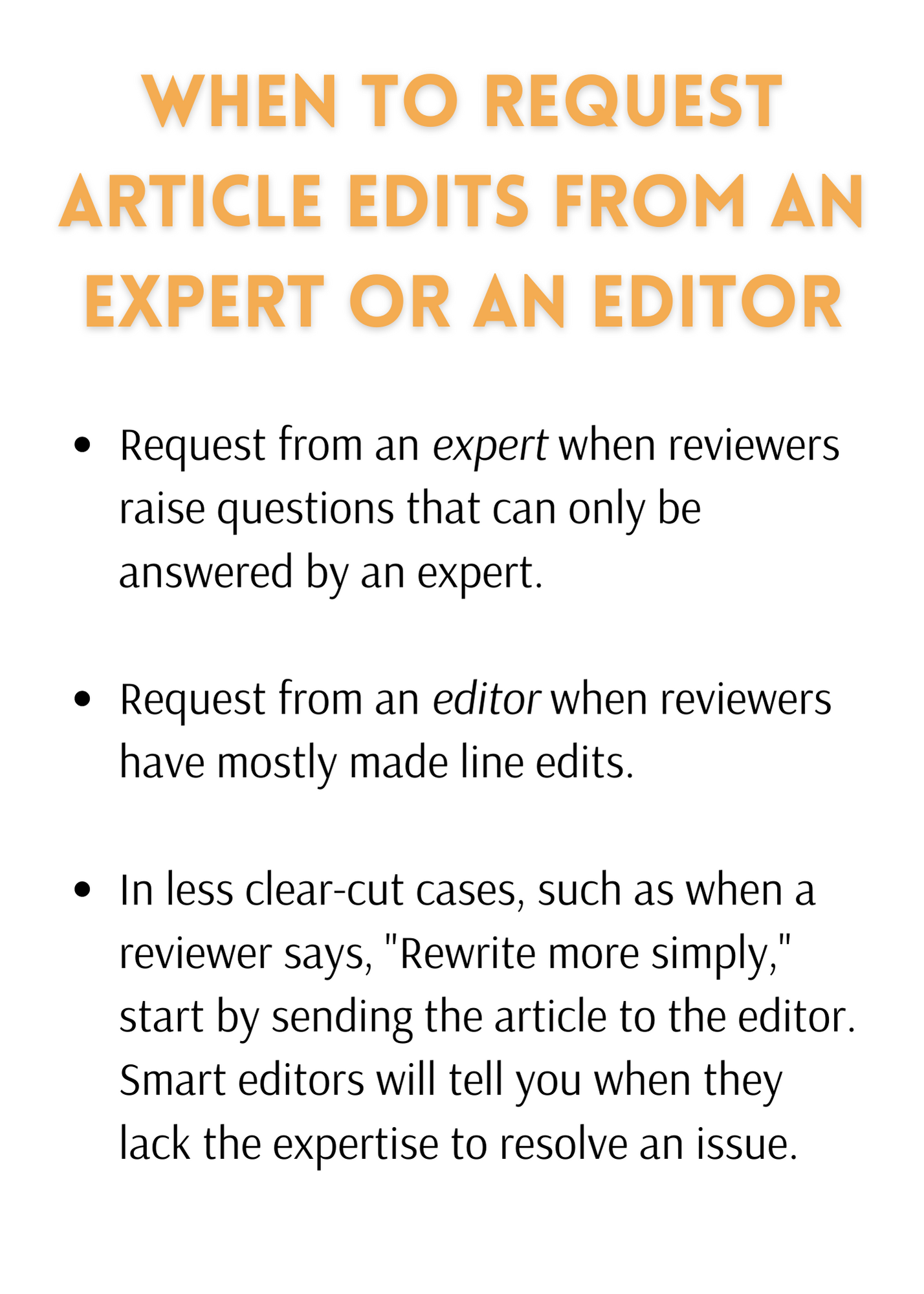When to send an article to the expert, not an editor
If you work in a marketing or editorial group, the pieces that you work on may get comments from many different people. Sometimes your next step should be to send the piece to an editor to clean up or proofread the writing. Other times, you need to send the piece back to the subject-matter expert—often called a SME in the marketing world.

When to send to the expert
Send the piece to the expert when reviewers raise questions that can only be answered by an expert. For example, “Which S&P 500 sectors does this technique apply to?” That’s not a question to which an editor is likely to know the answer.
The answer is less clear when one of the reviewers has written, “Please rewrite more simply.” Then it’s a judgment call whether expert knowledge is required to implement the reviewer’s request. If you’ve worked a long time at your company, you may know enough to make that call.
When to send to the editor
If reviewers have mainly made line edits to an article, you can send the piece to your editor. Cleaning up the grammar or word usage is unlikely to require a subject-matter expert.
When you’re not sure
When you’re not sure about the best next step, I suggest you ask your editor for advice. An editor to whom you’re important as an internal or external client is likely to respond more quickly than a subject-matter expert who views your work as tangential to their role. Also, smart editors will tell you when they lack the expertise to resolve an issue.
YOUR tips?
Do you have tips on how to handle this issue? Please share them.
